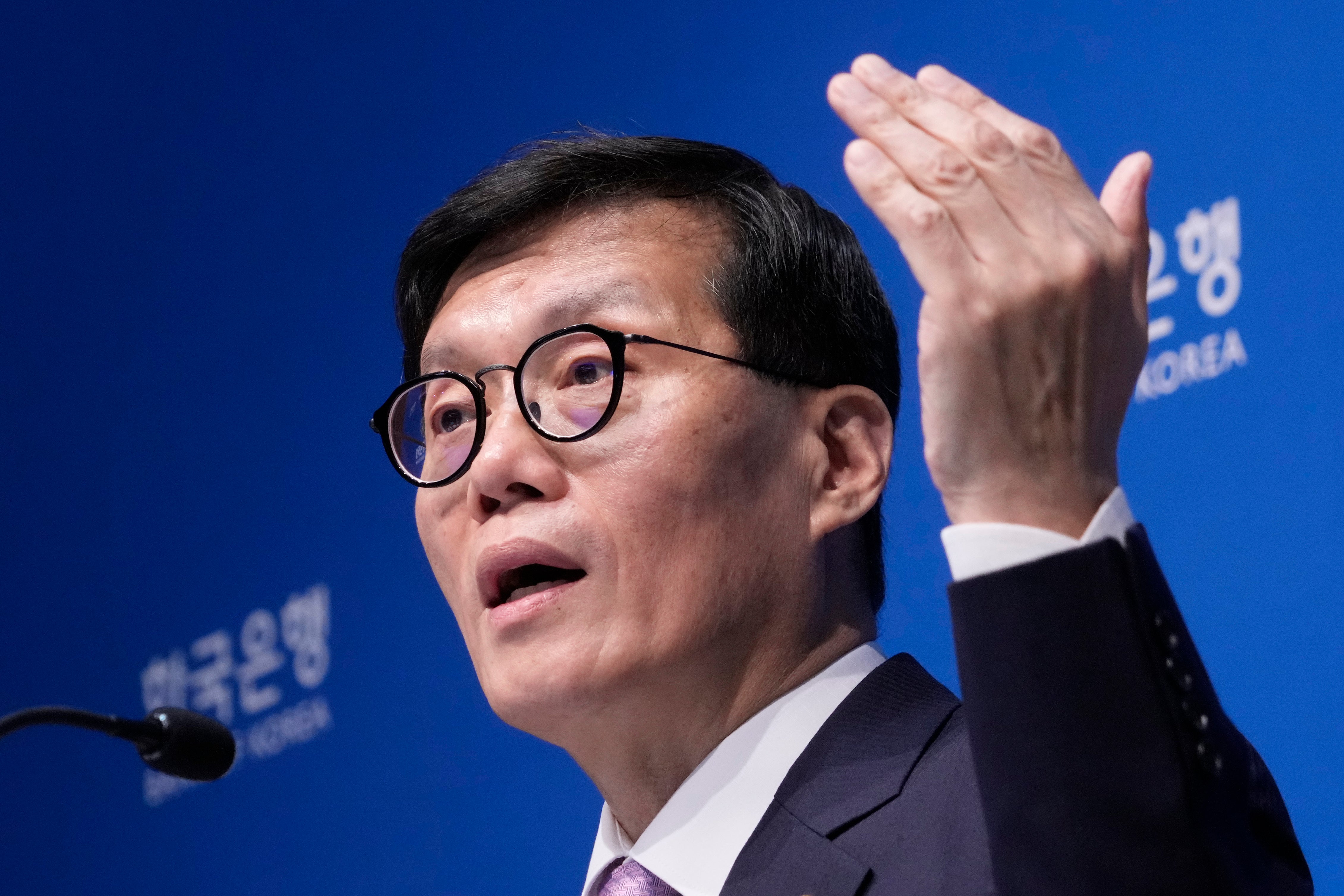South Korea’s central bank raises rates in a bid to boost the economy
South Korea’s central bank cut its policy rate for the first time in more than four years as pressure to revive a sluggish economy outweighed concerns about the country’s level of household debt

Your support helps us to tell the story
From reproductive rights to climate change to Big Tech, The Independent is on the ground when the story is developing. Whether it's investigating the financials of Elon Musk's pro-Trump PAC or producing our latest documentary, 'The A Word', which shines a light on the American women fighting for reproductive rights, we know how important it is to parse out the facts from the messaging.
At such a critical moment in US history, we need reporters on the ground. Your donation allows us to keep sending journalists to speak to both sides of the story.
The Independent is trusted by Americans across the entire political spectrum. And unlike many other quality news outlets, we choose not to lock Americans out of our reporting and analysis with paywalls. We believe quality journalism should be available to everyone, paid for by those who can afford it.
Your support makes all the difference.South Korea’s central bank on Friday cut its policy rate for the first time in more than four years as pressure to revive a sluggish economy outweighed concerns about the country’s level of household debt.
The Bank of Korea lowered its key interest rate by a quarter percentage point to 3.25% following a meeting of its monetary policy committee, in its first move to lower borrowing costs since May 2020, when the economy was weathering the Covid-19 pandemic.
The bank raised the rate by a quarter percentage point in August 2021 over concerns about inflation and soaring household debt, driven in part by skyrocketing house prices, and then froze rates for over three years.
The bank said in a statement that domestic demand is making a slow recovery, bogging down the pace of economic growth. It said there was room for a rate cut because inflation is showing signs of stabilizing and household debt is also increasing more slowly as the housing market in the greater Seoul area cools down.
South Korea’s trade-dependent economy is facing increasing uncertainties, including the growing crisis in the Middle East that could potentially influence fuel prices, exchange rates and public utility prices, the bank said.
“The future path of economic growth is likely to be influenced by the pace of recovery in domestic demand, economic conditions in major countries and trends in information-technology exports,” the bank said.
“The growth in house prices in the metropolitan area and household debt is expected to gradually slow down due to the strengthening of macroprudential policies,” aimed at maintaining the stability of the financial system, the bank said.
“However, there’s still a need to monitor related risks, such as the impact the lowered base interest rate may have on household debt.”
The bank projects South Korea’s economy to grow at 2.4% this year, down from 2.6% in 2023.